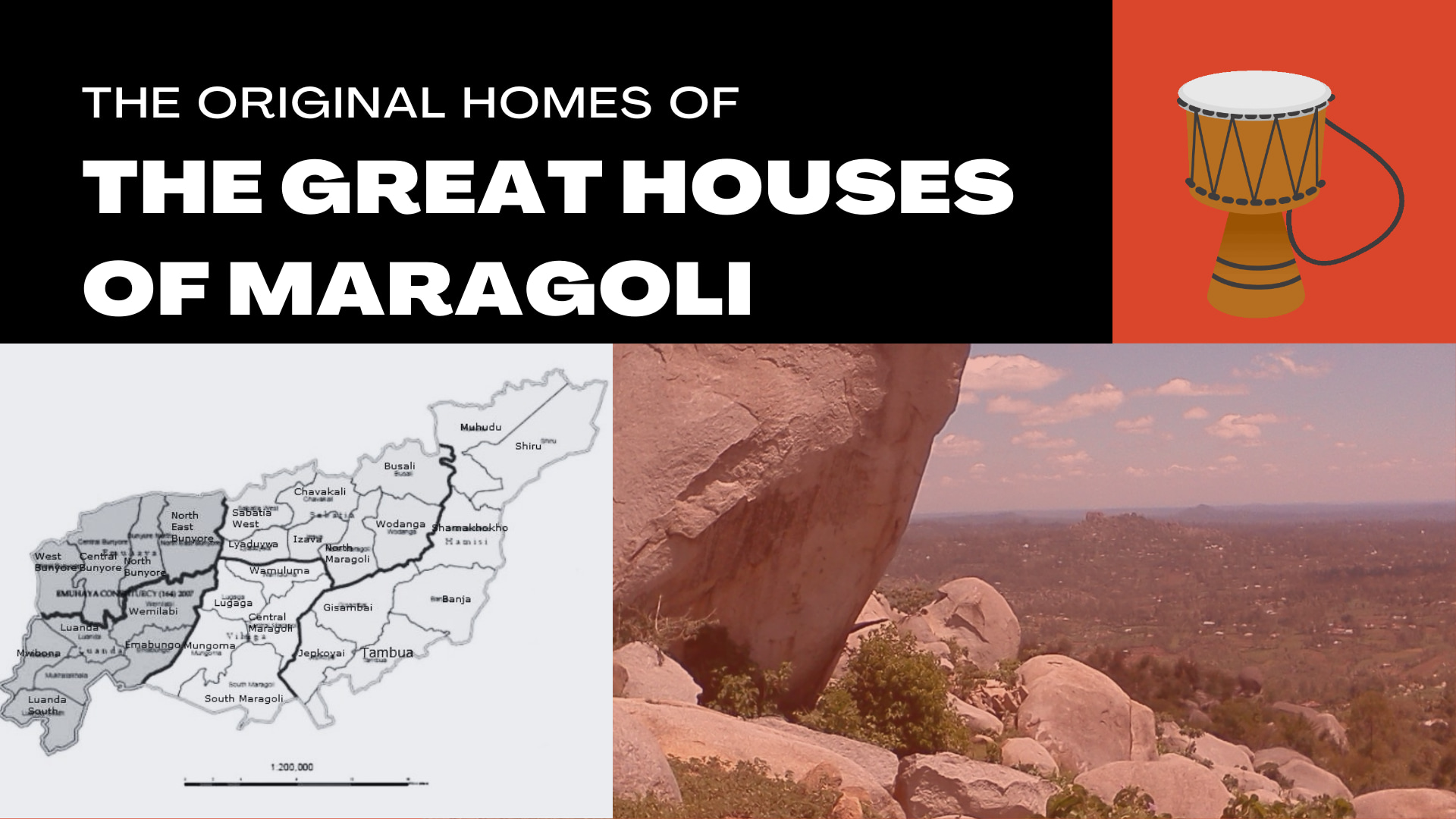M’mavi ni vwaha? Who is M’mavi? The best answer to this question is ‘M’mavi yatigala nalinda misanga gia mulogoli’; meaning, M’mavi is the one who remained to care for his father’s land (Mulogoli). But what do we mean by this? Join us as we take a dip into Maragoli culture and take a sneak peek into the obligations of the great house of M’mavi of the Maragoli people. The Maragoli are the second largest tribe of the Luhya supra-community from Africa’s Great Lakes.
Watch Video
[embedyt] https://www.youtube.com/watch?v=jkQWw0HfWec[/embedyt]The patriarch and matriarch of the Maragoli people, Mulogoli and Kaliyesa, had four sons, Musali, (M)Kizungu, (M)Kilima and M’mavi. These four sons make up the tsinyumba / tzinene, (great houses) in the segmentary lineage structure of the people of Logoli.
When Mulogoli gave land to his sons, the first born son Musali and his younger brother Mkizungu the second born, moved north. Mkilima inherited the land to the West while M’mavi yatigala nalinda misanga gia mulogoli. Meaning, he “remained behind” caring for father’s (Mulogoli) land.
M’mavi, the keeper of the hearth
As is now customary for last born among the Maragoli, the last born son of mulogoli and Kaliyesa called Maabi or M’mavi, inherited the land where his father’s bones would rest. This land was in the south and swept north and north east from Mungoma hills. Mungoma hills and its caves are a modern day tourist attraction found in Vihiga county of Kenya. This cultural site is known as the ancestral home of all Maragoli people.
To date among the Maragoli, it is the last born (mkogoti) son that inherits the bones of his fathers. The last borns are the custodians of the family hearth and are expected to keep the oluyia and name alive, and tend to the bones of the departed. Therefore, among the Maragoli, last born sons, as is the case with M’mavi, play the role simillar to that of the guardians are in Pluto’s political philosophy.
Subscribe to Mulembe Weekly
Get culture, language, stories and discussions in your inbox every Friday 5 PM East Africa Time

